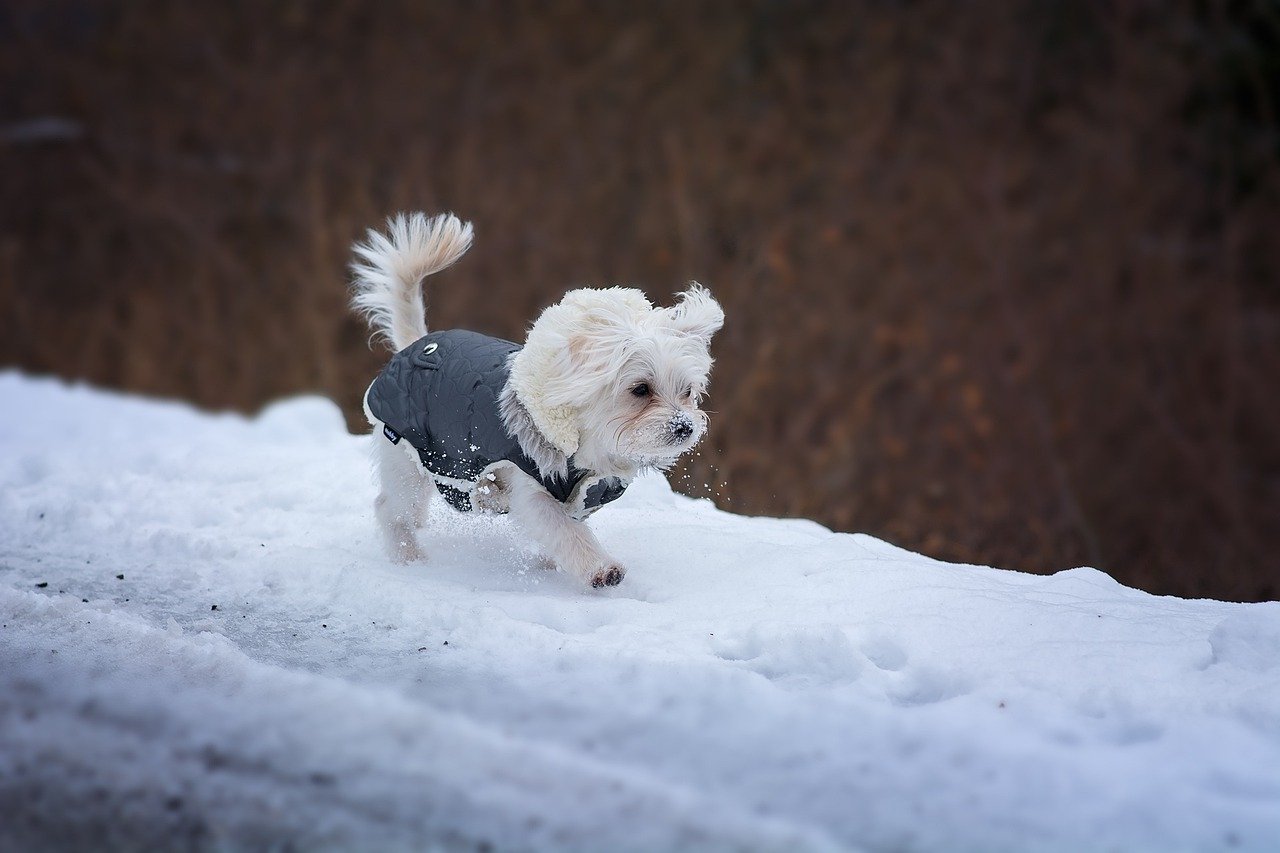In the world of dogs, small breeds hold a special place. Their small size, energy and charming personalities make them incredibly appealing. However taking care of these creatures requires an approach, to their health and overall well being compared to bigger pets. Whether you're a proud parent to a spirited French Bulldog, a tiny Yorkshire Terrier, or a regal Poodle, understanding the nuances of caring for a small dog can lead to years of joy and a fulfilling companionship.
Improving Your Small Dog's Diet
Small dog breeds may not require large meals, but they certainly need a diet packed with nutrition. Each bite must be a balance of essential nutrients to keep up with their high energy levels.
Nutrient-Rich Meals are the Key
Opt for quality over quantity. Foods formulated for small breeds help meet the specific caloric and nutritional needs of smaller bodies. Overfeeding is a common mistake, but with nutrient-rich food, your dog will get all they need in smaller portions.
Healthy Snack Ideas
Healthy snacking is vital. Low-calorie options like cucumbers are great treats that keep your dog hydrated and energetic. They're a crisp, refreshing reward without the added pounds!
Why Scheduled Meals Are Important
Consistent feeding times regulate metabolism and maintain stable energy levels. Unlike free-feeding, set meal times help prevent weight gain and make mealtime a routine to look forward to.
Watch for Dietary Red Flags
Monitor your dog's appetite. Sudden and unexpected alterations, in behavior might be a sign of underlying health problems so it's important to seek attention. Taking action is essential to address any health concerns at an early stage.
Physical Activity and Learning Enhancement
Don't be fooled by their size; small dogs are brimming with energy, and they require regular exercise and mental stimulation to remain healthy and happy. Taking care of their energy goes beyond engaging in physical activities; it's, about nurturing their overall well being.
Exercise Requirements
Every breed has unique exercise requirements. While a French Bulldog might prefer playful games, a Beagle could benefit from a good sniff around the park. Understanding the exercise requirements of your dog is essential, for their health and happiness.
Brain Exercise
Toys can be more than just playthings; they are tools for mental stimulation. Interactive toys, such as puzzles or chew toys, keep your dog's mind sharp and curiosity piqued. They also prevent behaviors resulting from boredom.
Puppy Training
Puppy training isn't just for good manners; it's a cerebral exercise. When it comes to teaching commands or introducing tricks training sessions provide valuable mental exercises. Moreover they help build a bond and foster better communication, between you and your furry friend.
Social Butterflies
Interaction with other dogs can be a delightful experience for your pet. Regular playdates or visits to the dog park encourage social development and can be great exercise sessions. However, be mindful of their temperament and preferences to ensure these interactions are more fun than stressful.
Healthcare to Keep You Healthy
Caring for your small dog goes beyond the basics of food and exercise. It's also about preventing issues before they arise. Regular vet visits, timely vaccinations, and parasite control are just the tip of the iceberg when ensuring your little companion stays in peak health.
Routine Veterinary Check-ups
An ounce of prevention is worth a pound of cure. Schedule regular veterinary visits to catch potential health issues early. Regular check ups typically involve screenings, dental treatments and vaccinations that play a role, in maintaining long term health.
Good oral health is important for overall health.
Looking after your teeth is more, than, about breath. Dental problems can affect your health so its crucial to maintain a brushing routine and schedule regular dental check ups for a healthy lifestyle. It's also beneficial to start with care for your dog helping them get used to the process and ensuring stress free dental hygiene routines.
Fighting Fleas, Ticks, and Worms
Parasites aren't just a nuisance; they can carry dangerous diseases. Ensure your dog is on preventative flea, tick, and worm treatments. Consult with your vet about the best products for your pup's age, weight, and health condition.
Why Spaying/Neutering is Important
This common procedure contributes to a longer, healthier life by preventing certain cancers and illnesses. It also curbs overpopulation, marking it as a responsible choice for pet owners.
Keeping an Eye on the Eyes and Ears
Small breeds often suffer from eye and ear issues. Regular maintenance and routine check ups can help prevent infections and monitor any health issues. It is crucial to detect problems to ensure treatment.
Nutritional Needs
When it comes to the health of your pint-sized pal, proper nutrition is a game changer. Smaller breeds of dogs have needs that when properly addressed can help them lead a healthy and energetic life. Lets explore how you can make sure that your dogs meals are beneficial, for their well being.
Quality Over Quantity
Small dogs need nutrient-dense food specifically formulated for their accelerated metabolisms. When making a choice it's important to select a brand that utilizes top notch ingredients without any additives. Remember, good health starts in the bowl.
The Lowdown on Treats:
While it's hard to resist those puppy-dog eyes, overindulgence in treats can lead to obesity, especially in smaller breeds. Opt for healthy snacks, and remember, treats should not constitute more than 10% of your dog's daily caloric intake.
Hydration Station:
Adequate water intake is crucial for your dog's health, aiding in digestion and temperature regulation. Make sure your dog always has access, to water and keep an eye on their drinking especially when its outside.
Dietary Diversification
Introducing safe fruits and vegetables can provide necessary vitamins and minerals, adding a nutritious variety to their diet. However, research is key to know which foods are safe for canine consumption.
Mental Health and Enrichment
Just like humans, dogs thrive with the right mental stimulation and emotional connections. Small dogs, full of energy and curiosity, benefit immensely from activities that keep their minds sharp. In the following section we will discuss methods to ensure that your friends mental health is properly looked after.
The Power of Play
Toys are not just for physical activity; they stimulate your dog's mind, too. For example interactive toys can engage their minds. Help them develop problem solving abilities. Keep switching up the toys to maintain their interest and don't hesitate to join in the fun to strengthen your bond.
Training Time
Training sessions are mental workouts. Teaching your dog new tricks or commands keeps their mind active and allows them to focus their energy constructively. It's also a way to enjoy some time together strengthening the bond of trust and friendship.
Social Butterfly
Ensuring your dog's emotional well being is important and socialization plays a role, in achieving this. Interacting with dogs and humans helps them build confidence and develop skills, which in turn helps prevent anxiety and behavioral problems. Regular visits to dog parks or playdates with furry friends can make a world of difference.
Home Alone
Small dogs are often more prone to separation anxiety. Create a comforting environment with calming dog beds or familiar scented items when you're away. Also, consider leaving interactive toys to keep them occupied and lessen feelings of loneliness.
Plush Heart Fluffy Calming with Pillow Dog & Cat Bed

699,00 kr
998,00 kr
This FunnyFuzzy Fluffy Calming Dog Bed is the perfect choice for your pet on cold night, bright colors that are sure to brighten up dreary days. Decorative: The color matching design is particularly eye-catching, placing in the house is not only… read more
Conclusion
As we come to the end of this guide it becomes clear that ensuring the well being of your dog goes beyond giving them proper food and regular exercise. It's, about establishing an atmosphere of love, care and attentiveness tending to their mental and emotional requirements.
Reference: https://www.akc.org/expert-advice/health/how-to-care-for-small-medium-dogs/








